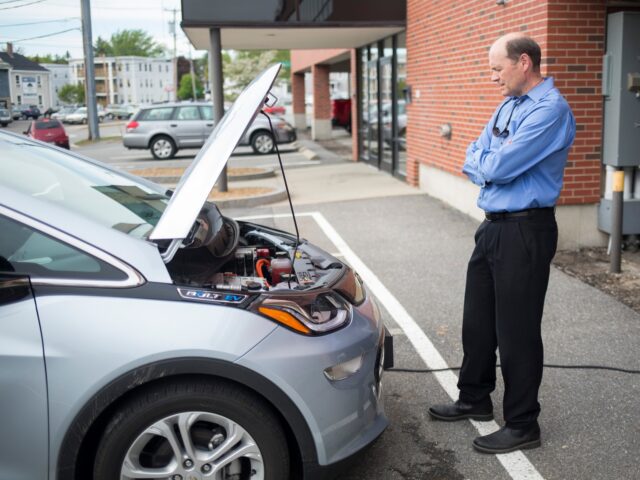A consumer research group surveyed electric vehicle (EV) owners all around the world and found 46 percent of American EV owners regret their purchase and are “very likely” to switch back to the internal combustion engine (ICE).
Around the world, 29 percent of EV owners said they will go back to the ICE. The top concerns are the lack of a reliable charging infrastructure, the costs involved in owning an EV, and anxiety about long-distance trips.
Philipp Kampshoff, leader of the consulting firm Center for Future Mobility, told Automotive News he was surprised by the 49 percent number in the U.S. “I didn’t expect that,” he said. “I thought, ‘Once an EV buyer, always an EV buyer.'”
RELATED: Tesla Driver Stranded on Christmas Eve After Battery Refused to Charge
Video Source: @domnatishow/ AUTO OVERLOAD/TMXThe research group, McKinsey & Company, spoke to 30,000 consumers across 15 countries and found that:
- Twenty-one percent of global respondents do not want to ever switch to an EV. Among those, 33 percent cited charging concerns.
- Charging concerns are exacerbated by range-related expectations. Consumers’ minimum range expectations have grown to 291.4 miles today from 270 miles in 2022. The range of in-market products has not grown as quickly, McKinsey said.
“[C]onsumers are slightly more willing to consider electrified vehicles than they were two years ago,” per Automotive News. “Thirty-eight percent of non-EV owners say they anticipate that a plug-in hybrid or full battery electric will be their next vehicle. That’s up from 37 percent in 2022.”
But a one percent increase from 37 to 38 percent is not what EV advocates had been hoping for.
The idea was to have more people purchase and love their EVs, which would then increase demand and desire for EVs. That is obviously not happening.
Also not happening, as anyone can see, is the building of a charging infrastructure. There is not enough demand in the free market to build these charging stations through private enterprise, so two years ago the Biden administration allocated $7.5 billion to build a charging infrastructure.
To the surprise of no one, two years later, only eight charging stations have been built.
If there were a demand for charging stations, private corporations would be building them all over. Obviously, no one sees the potential to profit from such an enterprise. And now that the American EV industry appears to have peaked in demand and sales, and with 46 percent of U.S. buyers wishing they had stuck with the good old ICE, it’s hard to see things turning around.
RELATED: Hurricane Turned Electric Vehicles into Ticking Time Bombs — “Extreme Hazard”
And even if the federal government does build a charging infrastructure, that won’t solve a number of other problems: 1) the time it takes to recharge, 2) the fear the charging station will be busy or not work, and 3) the fear of running out of charge on the road. It’s not like someone can get you back on the road with a gallon of electricity.
Until you can recharge in ten minutes or less and those recharging stations dot the landscape like gas stations presently do, EVs will remain an impractical status symbol for the elite.
John Nolte’s first and last novel, Borrowed Time, is winning five-star raves from everyday readers. You can read an excerpt here and an in-depth review here. Also available in hardcover and on Kindle and Audiobook.

COMMENTS
Please let us know if you're having issues with commenting.